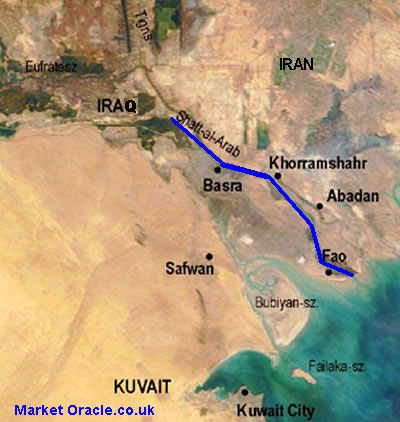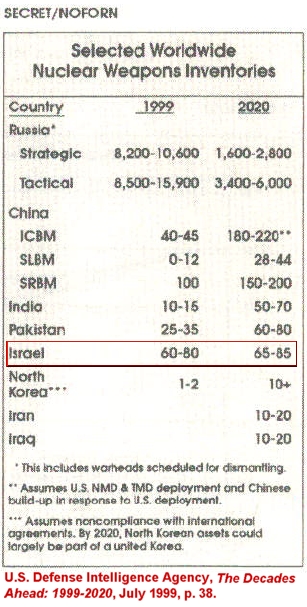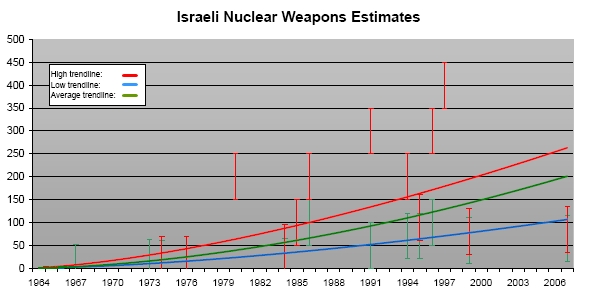Russia Lends a Hand

There were echoes of the cold war yesterday, as Iranian Defense Minister Mostafa Mohammad Najjar announced that Russia would supply his country with an S-300 air defense system, capable of shooting down aircraft, as well as ballistic and cruise missiles. The White House, of course, expressed concern about the agreement, coming at a time when it has asked for a new round of United Nations sanctions on Iran. Russia, meanwhile, hasn't acknowledged the sale. But earlier this month, Russian military cooperation chief Mikhail Dmitriev argued that defense ties between Russia and Iran "reinforces stability in the region." While there's a certain amount of nose-thumbing in Russia's position, there's also some merit. An improved Iranian air defense system could improve security in the region, particularly by deterring a unilateral Israeli attack. But while there are some upsides to Russian-Iranian cooperation on defensive systems, cooperation on offensive military equipment is something to worry about. With a 90-mile maximum range, the S-300 is similar to the U.S. Patriot system. Along with the short-range Tor-M1 surface-to-air missile system that Russia delivered to Iran earlier this year, it would modernize Iranian air defenses -- previously based largely on deteriorating 1970s American technology. And it would pretty much put the kibosh on Israel's ability to attack Iran on its own. Former Israeli Air Force Commander Eitan Ben-Eliyahu has said that the Russian missiles would make it significantly harder for Israel to attack from the air. And, even if an Iranian nuclear weapons program some day crossed a line that justified preemptive attack, the world would be far safer if there were technological and other constraints on unilateral action. Adopting these systems would also make the Iranian military somewhat more transparent and make Iran more dependent on outside sources of military goods, both of which could be positive in the long-run if U.S.-Russian relations stay warm. But those benefits are counterbalanced, though, when you move from talking about defensive military systems to offensive ones. And, indeed, Iran and Russia are in negotiations to expand military cooperation beyond air defenses, including attack helicopters and jet engines for a fleet of indigenous Iranian fighters. There have also been reports that Iran intends to purchase Russian Sukhoi Su-30 fighters. Despite the cold-war-like response to the S-300 announcement, these other negotiations have gone on without much notice. But the buildup of Iranian military capabilities is far more likely than the buildup of its air defenses to be the spark of future conflict.
Source: http://blog.washingtonpost.com/early...l?nav=rss_blog
Russia Helps Iran Keep Balance of Power


A meeting of the Russian-Iranian intergovernmental commission on military-technical cooperation took place n Tehran at the end of last week. The commission discussed leasing Russian helicopters and deliveries of modified RD-33 engines for Iranian jet fighters. Head of the Federal Military-Technical Cooperation Service Mikhail Dmitriev stated that cooperation with Iran would continue with the goal of maintaining the balance of power in the region. The engines will power multipurpose supersonic fighter jets developed in Iran to replace American F-5 models obtained in the 1970s and the Iranian modification of them, called the Azarakhsh (Lightening). The deal was discussed during Russian President Vladimir Putin's visit to Iran in October. A modification of the Ka-32 helicopter is also being considered. Iran began negotiations on the serial assembly of the Ka-32 two years ago, but those negotiations were discontinued. In 2006 and 2007, Russia supplied Iran with Tor-M1 air defense systems to defend the atomic power plant being built at Bushehr by the Russians. Talks on deliveries of S-300V air defense systems and MiG-29 and Su-30 fighter jets were also discontinued about a year ago. A delay in the U.S.-Iranian war is implied by the recent publication of a U.S. intelligence report indicating that Iran closed down its military nuclear program in 2003. Russia is clearly taking advantage of the situation to sell as many weapons as possible. Dmitriev stated that “Russia and Iran are strengthening stability in the region.” He added that “We are talking about defensive types of weapons… Iran has never asked for and Russia would never give Iran offensive weapons to encourage any, conditionally speaking, aggression against anyone.”
Source: http://www.kommersant.com/p839198/r_500/arms_sales/
Russian official: Russia, Iran should bolster all-out ties

Russian Deputy Foreign Minister Alexander Losyukov said on Thursday that Iran has a special position in Russia's foreign policy. Speaking to reporters, he said the two sides' leaders especially after the recent visit of Russian leader Vladimir Putin to Iran have called for bolstering of ties between the two countries. Iran is regarded as Russia's most important and powerful neighbor, he said, adding that Russia gives priority to expansion of cooperation with Asian countries including Iran, China, India and Japan. Mutual cooperation between Iran and Russia would help restore security to the region, he pointed out. Iran and Russia have closely cooperated in anti-drug fight and terrorism in Afghanistan, he said. On Iran's nuclear programs, he said since the two countries enjoy very close ties, Moscow has played a special role to this end. On international cooperation between Tehran and Moscow, he said the two countries have adopted close stands on international developments and are determined to pursue the same path.
Source: http://www2.irna.ir/en/news/view/men...9787165043.htm









Leave a comment: